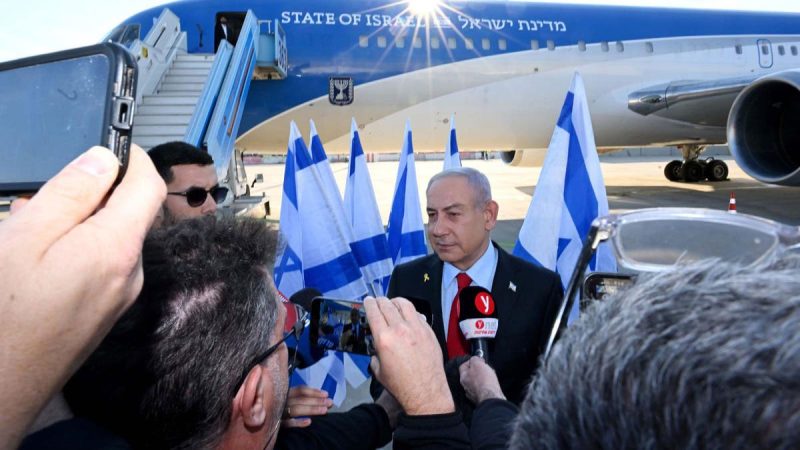When Prime Minister Benjamin Netanyahu touched the tarmac on Sunday, as he disembarked the ‘Wing of Zion’ in Washington, D.C., there was an undeniable buzz in the air.
Not just because Netanyahu will be the first foreign leader to visit the White House since President Donald Trump returned to the Oval Office. But because the Israeli premier’s invitation promises to usher in a revitalized era of diplomacy in the Middle East, strengthened by a robust U.S.-Israeli alliance.
The two leaders will convene on Tuesday afternoon to discuss the next phase of the hostage release framework, the Iranian threat, as well as prospects of a Saudi-Israel normalization deal.
I
Under President Trump’s first term, we got a glimpse of what a new Middle East might look like. The historic Abraham Accords, signed in September 2020 on the South Lawn of the White House, brought Israel closer to the United Arab Emirates, Bahrain and Morocco. During that first term, President Trump also embarked on a ‘maximum pressure’ campaign on Iran, aimed at sanctioning the regime and crippling its nuclear program. A new, prosperous Middle East was on the horizon.
A groundbreaking normalization deal with the Kingdom of Saudi Arabia might already have been signed by now had Iran-backed Hamas terrorists not thrown the region into tumult with the massacre of October 7, where 1,200 Israelis and foreign nationals were murdered and 250 more were brutally kidnapped.
In response to Israel’s attempts to foster regional peace and prosperity, its enemies chose war and destruction.
Our hostages are starting to return home, although we still have a long way to go. Hamas has been decapitated. Hezbollah’s leadership infrastructure has been eviscerated. The Assad regime in Syria has fallen. And Israel demonstrated its sophisticated military might in the heart of Iran.
Prime Minister Netanyahu and President Trump’s meeting this week will be one of their most significant in recent memory.
Defanging the Islamic Republic and its terrorist proxies will be a priority for the two leaders. We appreciate President Trump’s commitment to not allowing the Iranian regime to become a dangerous nuclear superpower that would upend not just regional, but global security.
The fall of the Assad regime and a weaker Iran bring us closer to Saudi-Israeli normalization. Saudi Arabia has pursued an ambitious modernization plan in recent years and has shunned the kind of extremism we see in other parts of the Arab world.
Normalizing relations with Israel is not just about trade agreements. It will lead to a groundbreaking strategic alignment in the Middle East that brings peace to all.
Israel will never compromise on the safety and security of its people and borders, but it is a nation of peace and will encourage dialog with nations that seek cooperation over conflict.
Republicans call for Trump to cut off American Bar Association
Several Republican senators have taken issue with the American Bar Association (ABA) and a…















